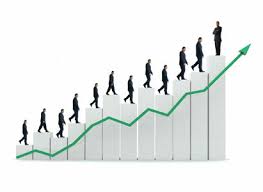How is it that others are so effortlessly making huge profits while you are just barely getting by? Are they trading with more invested capital? Are they using better brokers?
Are they subscribing to more accurate signals and indicators? Did they attend better colleges that taught them better strategies?
Are they getting more timely news feeds? What is it they are doing right that you seem not to be grasping?
The answer is actually very simple: They have the correct mindset.
The trick is not so much in what they do, or which signals they subscribe to but what their thought processes are like.
Let’s break that thought process down into their elements and see how that works.
Self Control
Traders fail because they live with the illusion that they can somehow control the market. Professional traders on the other hand know that the forex market is beyond the control of any single trader, institution, or even government.
The market is fully controlled by the market forces of supply and demand and these are influenced by economic factors. Since the professional trader knows s/he cannot control these, the next best thing is to control oneself.
Once you have achieved such a mindset, then you trade strictly according to your strategy, which definitely brings you more winning trades than losers.
By exercising self control, you do not go around chasing the market and trading under situations not supported by your trading plan. Instead, you patiently wait for the market to come to you.
You wait until the market aligns itself to your perfect conditions before you make any trade orders.

Forfeit Emotions
Emotions are what make us human and we all have them. Nevertheless, to make it as a professional trader, you need to learn how to rein in your emotions and keep them from influencing your trade decisions.
This is not an easy challenge, especially when your hard earned money is on the line. To succeed in keeping your emotions at bay, always trade within your risk tolerance level.
Enter each trade knowing that it may result in a total loss. Thus, do not trade with any amount that you are not prepared to lose.
Do this for each and every trade you enter and you will find that you are never overly excited about trade outcomes and your decisions will remain based on fact rather than greed or fear.
Stop Second Guessing
You can easily tell a professional trader from a novice, and a successful trader from a failure. This is by watching their trade actions.
Failing traders are usually over-involved with their trades. It is never enough for them to do their analysis, place their orders, and stay put to wait out the trade.
You will usually find them in the middle of a running trade shifting stop loss levels, reducing and adding to positions, adjusting their targets, and generally just second guessing themselves over and over again.
The professional trader on the other hand will take adequate time analyzing a position before entering a trade, and will then let the trade ride out its time without much further thought or reference to it.
The professional knows making endless adjustments will only create confusion and may end up with higher commissions and spreads even if it makes a profit.
Thoughts Breed Habits
The professional trader knows that what they think and how they react to those thoughts are bound to get repeated. And they know that repeating the wrong thoughts and actions results in detrimental trading habits.
For instance, if you keep telling yourself that the market is your slave and expect it to yield to your every command, then you will be reckless.
You will trade with extravagant stop loss orders and overly optimistic take profit orders. You will gain the habit of recklessly diving into the dragon’s lair seeking gold.
Similarly, if you think the market will crush you and leave you penniless, then you will form habits that are averse to risk.
That will translate to meager profits if any and excessive controls that make it impossible to profit in this lucrative market.
Professional traders on the other hand know that the market is unpredictable and there will always be winners and losers.
Thus, to stay on the winning side, professional traders form the habit of patiently waiting for the market to provide profitable conditions which align to the trader’s plan before they can make a move.
Taking Responsibility
Traders on the path of failure will always have explanations and excuses for why things did not work out.
The blame will go to the unexpected floods in Haiti, the events of 9/11, the election of the Catholic Pope, the Seattle Seahawks performance at the Super Bowl, and Robert Mugabe getting a stomach ache.
These traders will blame everyone and everything but themselves. On the other hand, a professional trader knows that the buck stops with him.
He bears all responsibility from loss making trades and learns from them. In fact, he also takes time to learn from his winning trades.
Tests
Professional traders will always test and beta test ideas and strategies. The professional trader knows that even the best proven methods have loop holes and should be put to trial before being accepted.
On the other hand, failing traders are too lazy to test anything.They choose to believe anything they read in text books and tutorials without finding out why the authors chose those strategies.
These lazy traders will go with whatever is being hyped about and obnoxiously pretend to be knowledgeable without really understanding how those particular ideas should be applied.
Conclusion
Become a top trader today. Choose to change how you think. Take control of your actions and bear responsibility for the trade outcome.
Remove emotions such as greed and fear from your trading and you will find that your decision making will get better and better each time.
